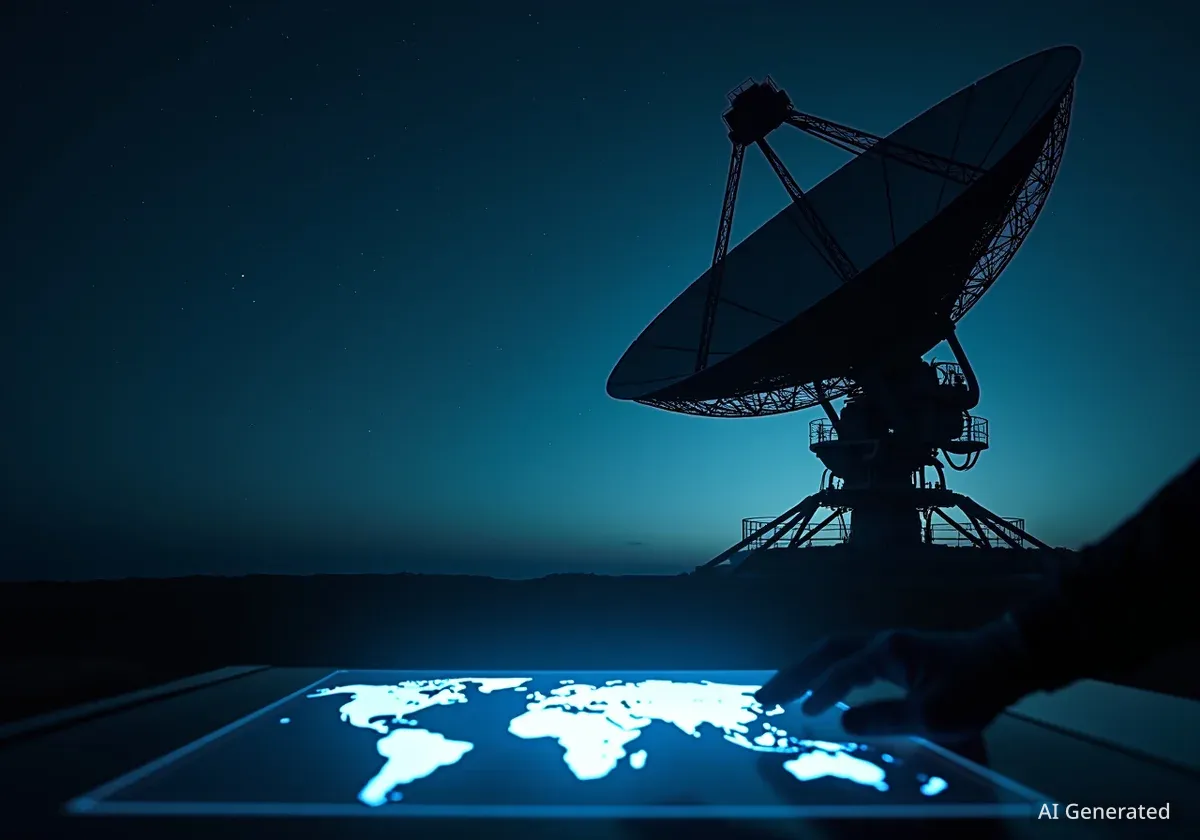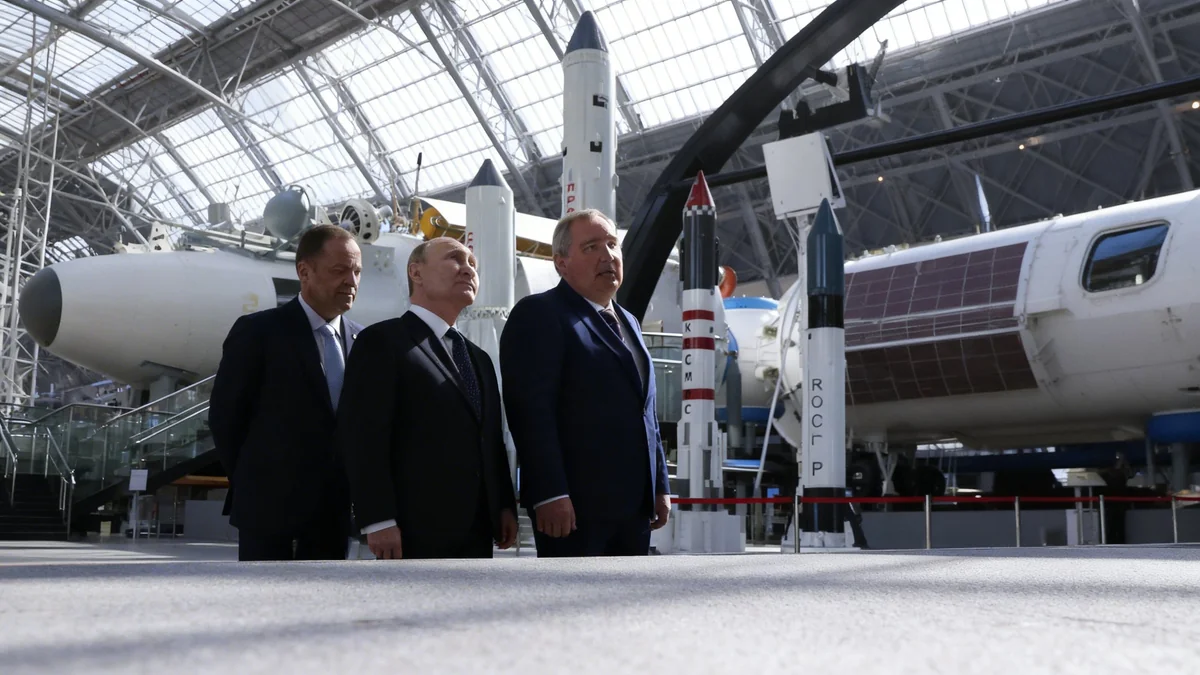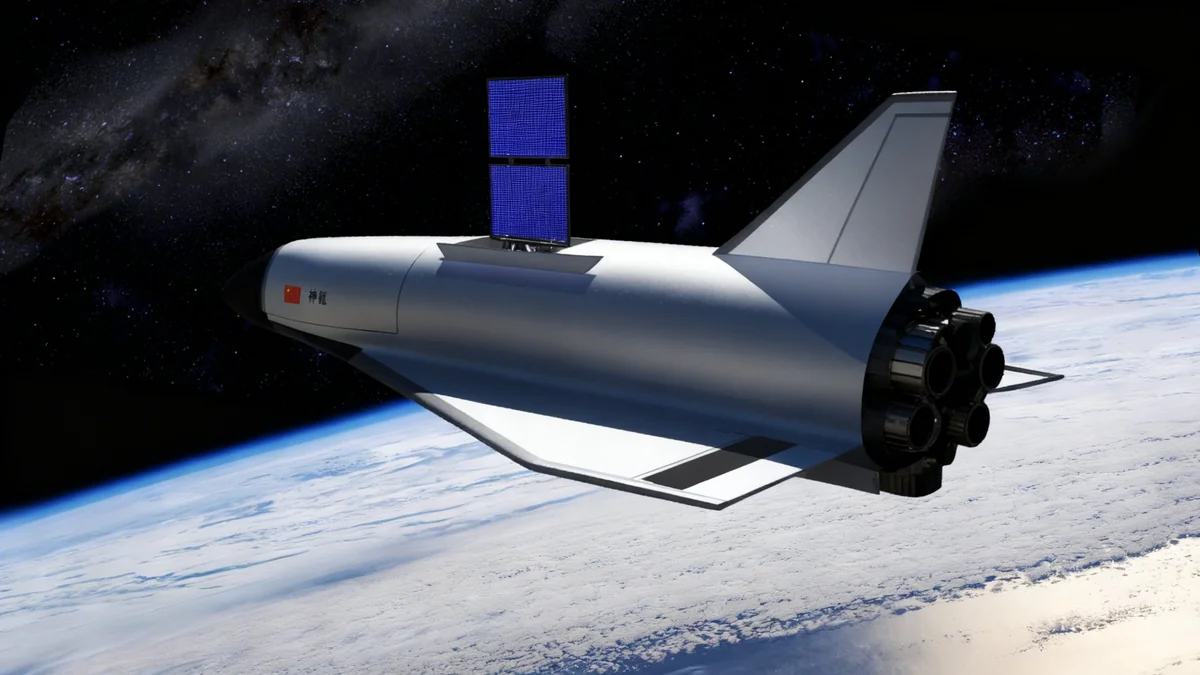The idea of space as a peaceful frontier for scientific exploration is changing. Experts now view Earth's orbit and beyond as a critical arena for global competition and potential conflict. This shift has significant implications for national security and daily life on Earth.
Key Takeaways
- Space is increasingly seen as a battlefield, moving beyond the ideals of the Outer Space Treaty.
- Potential attacks on satellite infrastructure could severely disrupt modern technology and essential services.
- Counterspace weapons include kinetic, non-kinetic, electronic, and cyber methods.
- Attribution of space attacks can be difficult, complicating international response.
- Strong alliances and a robust military presence in space are considered vital for Western security.
Space: From Exploration to Conflict Zone
For decades, humanity has viewed space with a sense of wonder and unity. Images of Neil Armstrong's moon landing and Earth as a 'blue marble' fostered ideas of peaceful cooperation. However, this perspective is evolving. Professor Albert Chapman argues that the founding principles of the Outer Space Treaty are now effectively obsolete. He suggests that space should be seen as a battlefield, a critical domain for geopolitical strategy.
This evolving viewpoint highlights a stark reality: the geopolitics of space could soon become a defining factor in everyday existence. The nature of conflict in space often blurs the lines between open aggression and hidden activities. This makes understanding and responding to threats more complex.
Fact: The Outer Space Treaty
The 1967 Outer Space Treaty forms the basis of international space law. It prohibits nations from placing weapons of mass destruction in orbit and limits military activities on celestial bodies. It promotes space as a domain for peaceful purposes.
The Risk to Terrestrial Infrastructure
Consider a scenario, either now or in the near future, where critical satellite infrastructure faces a major disruption. This disruption could come from a powerful solar flare or a deliberate attack by state actors like China or Russia. The consequences for modern societies would be severe and immediate.
Such an event could cripple many essential technologies. Air travel could halt, grounding planes worldwide. Emergency services, including ambulances, police, and courts, might face significant operational failures. Financial transactions could freeze, leading to widespread economic instability. Food supply chains could break down, causing panic buying and shortages in stores. Our ability to communicate via phones and social media could vanish. In essence, life as we know it could be profoundly disrupted overnight.
"If the West loses space, it may well lose the world," Professor Albert Chapman stated, emphasizing the critical importance of maintaining dominance in the region between Earth and Mars.
Potential for Widespread Disruption
The fictional TV series COBRA offered a glimpse into the chaos a solar flare could cause in the United Kingdom. It depicted impacts ranging from ordinary citizens to high-level government operations. While fictional, such scenarios are entirely plausible. Beyond natural events, space is a direct target for warfare, a threat that demands greater attention and defense strategies.
Understanding Space Dependence
Modern society relies heavily on space-based assets. Satellites enable GPS navigation, weather forecasting, global communications, financial transactions, and military intelligence. Disruption to these systems can have cascading effects across all sectors.
Methods of Counterspace Warfare
Counterspace weapons involve several deployment methods, each with unique destructive capabilities.
- Kinetic Physical Weapons: These include missiles designed to directly strike or detonate near a satellite or ground station. Such attacks can cause irreversible damage to systems and potentially result in casualties.
- Non-Kinetic Physical Weapons: Lasers fall into this category. They can physically impact satellite or ground systems without direct contact. Lasers can temporarily blind or permanently damage satellite sensors. They can also cause components to overheat, leading to system failure.
- Nuclear Devices: A nuclear detonation in space would create a high-radiation environment. This would generate an electromagnetic pulse (EMP) capable of damaging or destroying electrical components within orbiting satellites.
Electronic and Cyber Threats
Beyond physical destruction, electronic and cyber methods pose significant threats:
- Electronic Counterspace Weapons: These target the electromagnetic systems that allow satellite networks to transmit and receive data. Jamming devices can interfere with communications to and from satellites by generating noise on the same radio frequency. Such electronic interference can be difficult to distinguish from accidental disruptions, making attribution challenging.
- Cyber Counterspace Weapons: These attacks target specific data and the systems controlling data flow. They can also target ground stations, end-user equipment, or the satellites themselves. Cyberattacks aim to disrupt, deny, or degrade satellite services through digital means.
According to defense analysts, the ability to accurately attribute these attacks is crucial. Without clear evidence, international responses become complicated, potentially escalating tensions.
The Shifting Nature of Space
The space age began with a vision of utopian exploration and international scientific collaboration. Nearly seven decades later, space has transformed. It is now an arena of intense commercial activity and strategic competition among multiple global powers. It is no longer a sanctuary beyond Earth's contested zones. Space has become its own distinct arena for potential warfare.
The United States, according to Professor Chapman, needs strong alliances and a robust military presence. This is necessary to maintain dominance in the critical region between Earth and Mars. This objective may require re-evaluating day-to-day spending and short-term priorities, shifting focus towards long-term space security.
Maintaining a secure and accessible space environment is vital for global stability. The economic, social, and military implications of losing control in space are far-reaching. Nations must adapt their strategies to this new reality.





